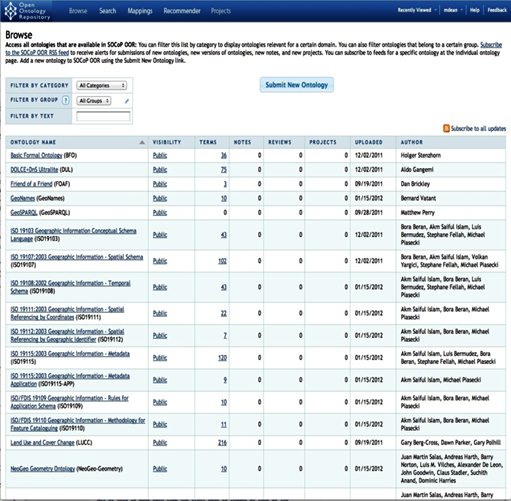Open Ontology Repositories (OORs) are relatively new tools designed to make ontologies more widely available. Without repositories, the results of good ontology work are not available for others to leverage and use. (2JXD)
The SOCoP OOR is at http://socop.oor.net, with a full list of ontologies available at http://socop.oor.net/ontologies. (3C7R)
Credits: This SOCoP OOR instance is maintained by Co-PIs MikeDean and PeterYim (and Peter's CIM3 team), with CIM3 standing up the server and infrastructure. KenBaclawski and others not on the SOCoP INTEROP grant also contribute to the OOR effort, which directly benefits the SOCoP OOR instance. (2JXF)
Briefing slides on the Geospatial Open Ontology Repository Initiative (SOCoP-OOR) for the NSF SOCoP INTEROP Project are available at [ slides ] and a small [ video-clip-demo ] has been placed online. (39X9)
An image of the OOR with content is shown below: (38EU)
Ontology repositories allow groups that have built ontologies on given topics to share their ontologies. Metadata could exist on particular ontologies to let users know what a particular ontology is good for and how to find additional resources relevant to particular domains. (2JXE)
The medical field has been working intensely on ontologies, and the Open Biological and Biomedical Ontologies (OBO) Library, is, for example, a collection of freely available well-structured controlled vocabularies available on the BioPortal. We plan on leveraging these. See SocopOor/RepositoryPrinciples (2T3C)
